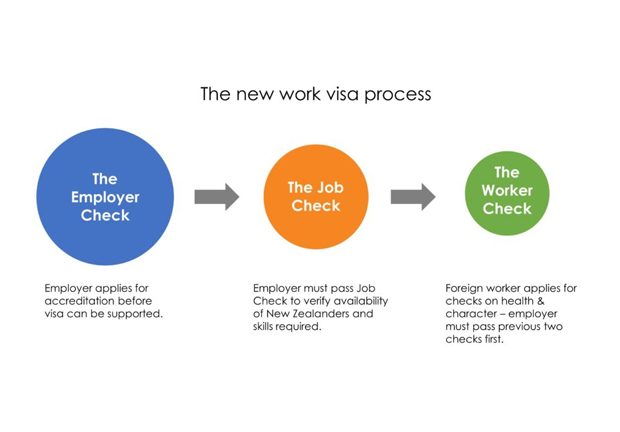Other Critical Workers – The Unyielding Border Category
06 July 2021New Zealand borders have now remained shut for almost 18 months. Since then, only a small portion of offshore workers have managed to enter the country through the border exemption process. The impact on New Zealand employers, many of whom are unable to meet INZ’s extremely high threshold but desperately require workers, is profound. Everyday we have employers asking us whether they can bring people in through the Critical Workers Category, so here are some considerations to make if you are thinking of going down this path.
At present, there are only 2 key categories via which businesses can bring workers to New Zealand – Critical Health Workers and Other Critical Workers. The former is only for selected roles within the health sector. The latter is open to everyone else.
Other Critical Worker (OCW) is the category that employers ask us about most, understandably so, as it is the most complex to comprehend. Sitting at an approval rate of around 50%, OCW caters to all types of non-health industries and selected government projects, and the bar for assessment is set extremely high. The initial request has to be put through by an employer or their representative (the employee cannot do it).
What Is the Trick to Getting an OCW Approved?
There isn’t one factor. It’s a combination of factors. The decisions (to decline or approve) are made by Immigration New Zealand’s national managers with input from business advisors. The applications are looked at with a fine tooth and comb and every argument presented is broken down to see if the worker is really needed physically in New Zealand.
First and foremost is looking at the uniqueness of the person’s skill – is there no one else in NZ who possesses the skill/experience or are there such workers in NZ but they are set in their jobs and unavailable to work for the employer in question? What about their remaining staff? Could they share the workload of the role in parts and collectively do the whole job?
Following that, can the worker do their job remotely? Many employers raise the time difference angle (that job can’t be done remotely due to opposite time zones). This argument will not work unless it is impossible to mirror NZ work hours. Inconvenience is not good enough; it has to be impossible.
If the role has a deadline, is it really that urgent? What will happen if its not met? How significant are the consequences; what’s the impact? Can it be mitigated by efforts made by the business using NZ based resources?
Finally, what efforts has the employer made to make it work without the worker being in NZ? INZ will look at the extent of efforts made – or is this application for border exemption the first port of action?
What Is INZ Assessing?
INZ looks at different roles in different ways. Senior Management roles and technical/trade roles are not assessed in the same manner. Example:
- For a high level management role, INZ could check - Is the employee's skill set actually unique or are they just the best candidate for the role?
- For a Faculty role, INZ will focus less on wider importance/benefit of the role (say assisting with pandemic response) and more on the actual skill set the employee has. What sets the employee apart?
- Checking whether someone is already doing the role albeit at stretched capacity is a consideration for most roles.
- For trade specific roles, INZ will look at how critical the employee's input is to the project? What will happen if they don't arrive next week? or Next month?
Again, these are only a few factors that can be used as a starting point for preparation of OCW applications. The focus must be presenting a holistic picture whilst clearly demonstrating how policy requirements are met (and also which policy your application is looking to meet, as there are multiple policies under the OCW category).
What if It's Still Declined?
In most cases, the employer can request a reconsideration of the application if they have new evidence to present. It must be compelling information that was not originally provided. You first need to clearly understand why it was declined in the first place though as reconsideration is the last chance to have the decision reviewed. Because if you do not know what's wrong, you cannot make it right. If the reconsideration is declined, then a new application will have to be submitted, and fees paid again.
The above are key considerations for OCW applications. They require intense thought, scrutiny, a large amount of evidence, time and patience. Some specific roles (like vendor appointed installers for a specific machinery are much easier vs. those at executive or C-suite level management). It is no easy feat to get entry approved via this pathway, and it has been set this way so only employers who really are stuck, have made multiple attempts to make alternative arrangements are the ones who get approved.
Immigration simplified
Providing professional immigration advice and support for over 15 years. Aims Global is an agile team of licensed immigration advisers and experts who are skilled advocates for our clients and are always at the forefront of policy changes.
Our mission is to help our clients achieve their goals through simplifying the complex immigration process. We are experts in understanding your needs so we can fulfill your purpose, whether you’re an employer, employee, student, or family.
- Zinnia Manchanda (Senior Licensed Immigration Adviser)





